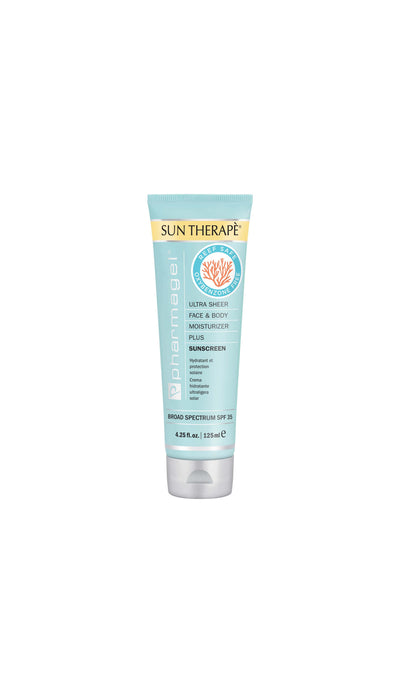Exfoliating Lotions:
What Are They and What Do They Do?
Achieving radiant skin depends on a number of factors, but especially on how well you care for your skin. Exfoliation is vital if you want to cultivate a well-rounded skin care routine. While exfoliating products such as scrubs and brushes are widely used, a newer category of skincare product is gaining popularity: exfoliating lotions. These products offer a gentle and effective solution for moisturizing dry skin while encouraging cell turnover to reveal a fresh, rejuvenated and youthful complexion. Continue reading to learn more about exfoliating lotions, how they work, and the numerous benefits they provide to your skin.
Understanding Exfoliating Lotions
These specially formulated skin care products contain various ingredients that are blended into one formula for promoting cellular renewal. Exfoliating lotions differ from physical exfoliants such as scrubs and brushes in how they remove dead skin and debris. While physical exfoliants slough off dead skin, exfoliating lotions use chemical compounds to dissolve the bonds between dead skin cells.
While different companies may use different chemical ingredients, the most common active ingredients are alpha-hydroxy and beta-hydroxy acids. These components combine to loosen the dirt and dead skin, which can then be washed away. The result is a smoother and healthier complexion.
The Role of AHAs and BHAs
Alpha-hydroxy and beta-hydroxy acids do not require any abrasive motion to work. Alpha-hydroxy acids work gently to dissolve the substances binding dead skin. Once the glue-like substances dissolve, you can cleanse the skin to remove debris and reveal radiant, fresher skin.
On the other hand, beta-hydroxy acids are perfect for deeper penetration. These compounds reach deeper to unclog pores, which makes them the perfect ingredient for oily skin.
Benefits of Exfoliating Lotions
- Improved Skin Texture: By removing the dead skin cells from the surface, exfoliating lotions leave behind fresher, smoother skin. Regular use can improve the appearance of fine lines and unevenness, resulting in a more radiant complexion.
- Enhanced Skin Tone: Removing the layer of dead skin can also improve the appearance of discoloration to reveal a more even skin tone. Dead skin gives a dull, lackluster appearance that can prevent you from achieving optimal radiance.
- Minimized Pores: Often, when pores are clogged, they appear enlarged, giving the skin an uneven texture; however, exfoliating lotions can reverse this effect by clearing the pores. By removing impurities, exfoliating lotions give your skin a smoother, more refined appearance.
- Acne Control: Exfoliating lotions can also help fight acne. Lotions containing alpha-hydroxy and beta-hydroxy acids can help calm acne breakouts and prevent future breakouts. They help keep pores clear of debris and removexcess sebum.
- Improved Absorption of Skincare Products: The buildup of dead skin can affect the effectiveness of skin care products as it creates a barrier; however, through exfoliation, these products absorb more easily, maximizing their effectiveness.
How to Use Exfoliating Lotions

Incorporating exfoliating lotions into your skin care routine can improve the results of your overall skincare routine. Below are guidelines on how to get started with exfoliating lotions.
- Patch Test: Take a small area of your skin to perform this sensitivity test. The patch test will help you check whether your skin adversely reacts to the product. This step helps avoid potential irritation or allergic reactions.
- Start Slow: When you start using exfoliating lotions, start small, then build on the development. Gradually progressing helps minimize the risk of irritation or over-exfoliation. Start by using an exfoliating lotion every other day and increase frequency as tolerated. Be careful when using multiple exfoliating products in your regimen, and discontinue use if sensitivity occurs. As you get accustomed and have confirmed that your skin does not react to the products, you can increase frequency.
- Cleanse First: As you build your routine, make a habit of cleansing your skin before applying an exfoliating lotion. Cleansing to remove any dirt, oil, or makeup beforehand will boost the effectiveness of your routine by initially clearing away the day’s debris.
- Follow Instructions: Each product comes with its own instructions. Make sure you read each label carefully to avoid irritation. Each exfoliating lotion may have specific instructions regarding application, including amount and frequency of use.
- Protect Your Skin: Note that by exfoliating, your skin becomes more exposed to different elements; for instance, the skin's sensitivity to the sun is increased. Without applying sunscreen, your skin can suffer UV damage. Opt for a sunscreen with at least a broad-spectrum SPF of 30 or higher to protect your freshly exfoliated skin from harmful UV rays.
- Moisturize: Lastly, remember to replenish your skin's moisture barrier as needed. If regular use of exfoliating lotions leaves your skin dry, it could be disrupting your skin's natural oil balance. If so decrease use and add an extra hydrating moisturizer to your routine. Typically, moisturizers that contain nourishing oils like Sunflower and Avocado, as well as ingredients like hyaluronic acid and ceramides, help provide intense hydration and support the skin's barrier function.
Exfoliating Lotions: What to Take Away
When incorporating exfoliating lotions into your skincare regimen, follow proper usage guidelines. You can start with patch testing and progress slowly. Keep in mind that exfoliation exposes new skin while dead skin and clearing pores, therefore, it's crucial to protect your skin through proper cleansing, adequate moisturization and regular application of sunscreen.
More importantly, it's essential to understand that each person’s skin is unique and may respond to exfoliating lotions differently, which is why it’s always good to consult a dermatologist or esthetician to discuss your skin type and the most appropriate products for it.








